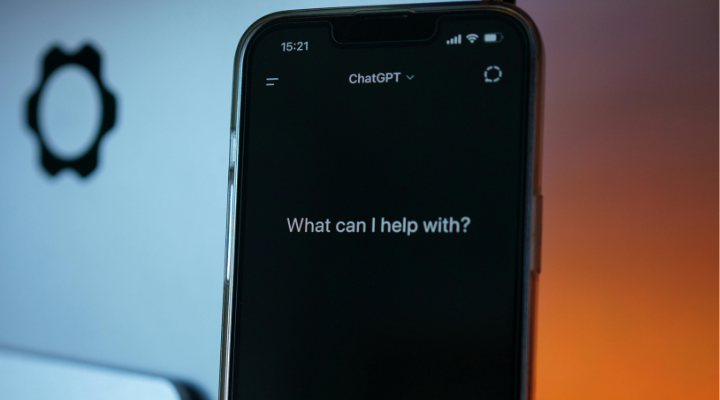Like many small-business owners – 62.5 per cent, in fact – Bec Alison is a sole trader, and has no team to turn to when she wants someone to bounce business ideas off.
Instead, the marketing professional turns to ChatGPT to work through mental blocks and prioritise daily tasks.
“As a small-business owner, you don’t generally have anyone to talk through ideas,” Alison told ISB. “ChatGPT allows me to get those thoughts out of my head and make sense of them.”
Alison opens ChatGPT throughout her day, including while driving (using the talk-to-text function). She admitted that the application is open on her devices “nine times out of ten”. Moreover, Alison’s AI doesn’t just give practical advice – it provides mental support, too.
“It can help you if you have a mindset block, almost by giving you a bit of a pep talk around how you can deal with it and if there’s any actions you can take to move past it,” she said.
Alison is far from the only solopreneur to use AI to make sense of her thoughts, talk her through problems, and for motivating pep talks.
While many business owners now use AI to streamline and support their business operations, it’s increasingly acting as an emotional support too, especially for sole traders.
Shona Gates, a solopreneur who owns the design studio Tyne Creative, told ISB that ChatGPT has become her late-night therapist.
“It’s surprisingly helpful to have a cheeky AI to bounce ideas off and help me stay on track when it’s too late to call a biz bestie or my mentor,” she said.
Anthony Shannon, who owns Tony’s Tech Support, also uses AI as a sounding board.
“[AI models] don’t always offer great advice, but explaining a problem out loud, even to AI, often helps me solve it,” he told ISB.
Why solopreneurs get attached – and when it’s a problem
It’s easy to see why natural language models appeal to solo business owners. Their mastery of natural language makes it feel like you’re talking to a real person, which can be comforting in moments where an advisor is unavailable.
Furthermore, AI can seem all-knowing. Its ability to regurgitate advice on seemingly any topic makes it tempting to lean into – to scratch that instinctive itch for a parent or mentor figure who knows more than we do.
Then there’s the fact that our AI tools are pre-trained to be ultra agreeable and say exactly what we want to hear, making them a reassuring voice in times of stress or uncertainty.
AI expert Leanne Shelton finds the trend of AI-as-business-mentor somewhat concerning.
“The AI might be agreeing with me, but for all I know, I could be completely off, and it’s just agreeing because that’s what it does,” she said. “I don’t like the idea of it being a co-founder, or of heavy reliance on it, because there are still humans that have a lot more worldly views on things that I would trust a lot more.”
Shelton pointed out that AI tools are simply prediction tools, regurgitating responses based on patterns; they aren’t thinking unique thoughts. At the end of the day, your AI doesn’t understand you emotionally – even if it sounds like it does.
How to use it properly
Despite the pitfalls, the solopreneurs that ISB heard from were clearly reaping some significant benefits from AI. Like anything, it seems to be helpful in moderation – i.e. as part of your support system but not as its entirety.
Bec Alison stressed that she seeks help outside AI when she needs it.
“It’s not going to replace an actual therapist or a business coach,” she said. “…But if you’re just needing someone to help you get on the right path, then it’s good.”
Alison added that she tries not to give too much personal information away, either – which is generally a good rule of thumb when it comes to AI, according to Shelton.
If you are asking your AI tool for advice, make sure you tell the algorithm to challenge your ideas. Shelton recommended phrases like “Based on your research…”, “Please push back”, or “Please feel free to challenge me…”. Over time, it will become less agreeable, and theoretically more useful.
So, in sum: if you’re using your AI as a co-founder, a business coach, or a therapist, you’re not alone. Talking to AI can improve your output, reduce decision fatigue, and maybe even support your mental health. It’s just when you become over-reliant – or when AI becomes a yes-man – that problems start to arise.
“Sometimes you don’t always like the friend who agrees with you – you like the friend who challenges you and pushes you,” Shelton pointed out. “We need to make sure we’re remembering it’s a bot regurgitating patterns. It’s giving us what we want, but it’s not necessarily giving us what we need.”














